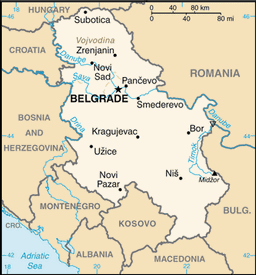During a visit to Belgrade today, Vice president Joe Biden offered “condolences” for the Serbian civilians killed in the 1999 US-led NATO bombing of Serbia, a war which resulted in the US-backed secession of Kosovo from Serbia.
 17 years after the campaign, Biden’s visit was aimed at getting Serbia to normalize relations with Kosovo, and marks the first time a high-ranking US official has made any offer of condolences for the substantial civilian death caused in the air war.
17 years after the campaign, Biden’s visit was aimed at getting Serbia to normalize relations with Kosovo, and marks the first time a high-ranking US official has made any offer of condolences for the substantial civilian death caused in the air war.
Though the exact figure remains hotly disputed, Human Rights Watch reported 90 confirmed incidents of civilian deaths, amounting to between 489-528 Serbian civilians. Three Chinese journalists were also killed in the US bombing of the Chinese embassy in Belgrade. There were also huge numbers of people wounded in the bombing campaign, with estimates in excess of 10,000.
Yugoslav officials claimed the death toll was far higher than the confirmed toll from HRW, putting the figure in excess of 1,200. NATO insisted all the killings were “legitimate” and that it was necessary “to defeat a great evil,” and that the cost of not killing the civilians would’ve been far higher.
Biden’s move comes just a year after NATO’s Secretary General visited Belgrade and similarly expressed “regret” about the civilians killed, though like Biden’s comments this was far short of an apology, and Stoltenberg defended the war as a “success.”
The civilian death toll has remained a source of tension between the NATO and Serbia, along with the continuing tension along the Serbia-Kosovar frontier. The secession of Kosovar left a substantial Serbian population inside north Kosovo, which the Kosovar government has persecuted and prevented from moving freely along the border with Serbia.
This war has played a big role in keeping Serbia neutral at a time when the rest of the region has been scrambling to join NATO. Polls have regularly shown very little interest among Serbians in joining NATO, and this might be driving the sudden interest among officials toward a rapprochement.


